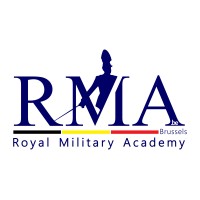Université Catholique de Louvain
As a university, UCLouvain is heavily involved in numerous cybersecurity projects.
As a founding and operational member of the largest cybersecurity consortium in Wallonia, UCLouvain continues to push the boundaries of research in the field of computer security in a cross-cutting manner.
As part of the AMC3 project, UCLouvain is responsible for developing formal validation techniques that will enable achieving EAL7 certification for the Common Criteria of the applications considered in the project.


Centre d'Excellence en Technologie de l'Information et de la Communication
As an applied research centre in the field of ICT, CETIC’s mission is to support economic development by transferring the results of the most innovative research in ICT to companies, particularly SMEs.
CETIC helps companies integrate these technological breakthroughs into their products, processes and services, enabling them to innovate faster, save time and money and develop new markets. CETIC develops its expertise in key technologies, including Big Data, Cloud Computing, the Internet of Things, software quality, and trust and security of IT systems. This expertise is continuously supplemented through CETIC’s active involvement in European and regional projects. CETIC has been working on the topic of cybersecurity certification in several research projects such as CYRUS, SPARTA or "Keep It Secure".
CETIC is located on the Aeropole of Charleroi, in the Walloon region, Belgium.
CETIC is responsible for WP1 that aims to produce certification evidence from cybersecurity tests, and will cover producing evidence during the design phase, during software updates and at run-time. CETIC is also responsible for WP3 that aims to automate evidence curation for certification evidence from cybersecurity tests, automate creation/update of assurance cases and assess confidence in the cybersecurity test assurance cases. CETIC will participate in the validation of bothe case studies of the AMC3 project.
FN Herstal
FN Herstal (FNH) is the Defense and Security entity of the Herstal Group. The company designs, manufactures and supports a portfolio of small arms, ammunition and the integration of weapon systems on land, air and sea platforms.
FN Herstal is about 1500 employees in Belgium among whom +/-300 are dedicated to Research and Development.
Besides its internally funded development projects, FN Herstal contributes to collaborative capability development projects of which 6 EU projects (EDIDP and EDF) and more than 10 R&D projects on national level (Walloon relaunch plan, DEFRA, Triple Helix) on topics going from unmanned systems integration, digitalization and networking of weapon systems, cyber security as well as new effectors and materials.
FN Herstal has developed the FN® SAM solution to support fleet management and maintenance of a weapon fleet. This dedicated software solution will require to be connected to our customers network and overall Enterprise Resource Planning (ERP) solution that manages all equipment and resources of a large organization. The focus will be to certify it towards the Belgian MOD environment, but this process could be employed in any other organization.
The aim of FN Herstal within the AMC3 project is to develop a specific use case for the AMC3 methodology and certify the FN® SAM software to ensure its resilience.


Royal Military Academy
The Cyber Defence Laboratory (CyLab) of the Royal Military Academy organizes information security, cyber defense and forensics courses and performs scientific and technological research in order to address the threat of increasingly sophisticated cyberattacks and contribute in this way to the safety and security of society.
The Cyber Defence Laboratory maintains a close structural partnership with the Belgian Defence Cyber Command (CyCom).
One of the CyCom cyberspace operations pillars focuses on force protection, with accreditation as an important cornerstone.
The results of the AMC3 project are expected to improve the effectiveness and the efficiency of the accreditation process.
